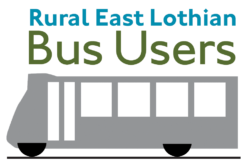One of the current ‘fads’ within the bus industry is the introduction of Demand Responsive Travel. Those supporting it are often those who stand to benefit financially from its introduction, usually funders, IT suppliers and those who may be funding a ‘fixed route and timetable’ bus service which might be replaced by DRT. With DRT the intending passenger usually has to pre book a journey on an APP or sometimes by telephone the day beforehand, and will often not hear if they have been successful until the morning of the day they intend to travel – because the service has a flexible route and equally flexible timings.
So if someone books a bus for, say 10am to reach an appointment for 10.30am, they might well find that the bus either cannot pick them up because it is going another way or will arrive later at their destination whereas with a fixed bus route, running to an advertised timetable, any appointments made will fit in with the timetable. In such scenarios it is unlikely that the passenger will use DRT again, wanting a more reliable form of public transport. Pre booking is also discriminatory against the elderly many of whom are unable to use APPs, yet they are precisely the ones who use rural bus services.
Whilst DRT may have some justification in Oldhamstocks, Garvald and Morham none of whom have any bus service at all, basically it is no more than a taxi service which could be provided significantly cheaper actually by using taxis (as they do in France with concessions permitted). Humbie already has a DRT service, but how many know about it? Most privately funded DRT schemes have been financial disasters and funding is withdrawn resulting in no bus service in areas where they have replaced a fixed bus route as Council subsidy was withdrawn at the start. Advertising DRT services is generally very poor – you really have to know who the operator is and have a number or APP beforehand. It is equally the case that having to book before your journey adds a major barrier to travel and destroys a turn up and go service. One of the motor car’s principal attractions is its go anytime, anywhere and to introduce pre booking in an attempt to attract car drivers onto a bus is a major and serious misunderstanding of the way potential passengers think and react.
RELBUS will become involved if there is a move to replace existing fixed bus routes with DRT in East Lothian.

